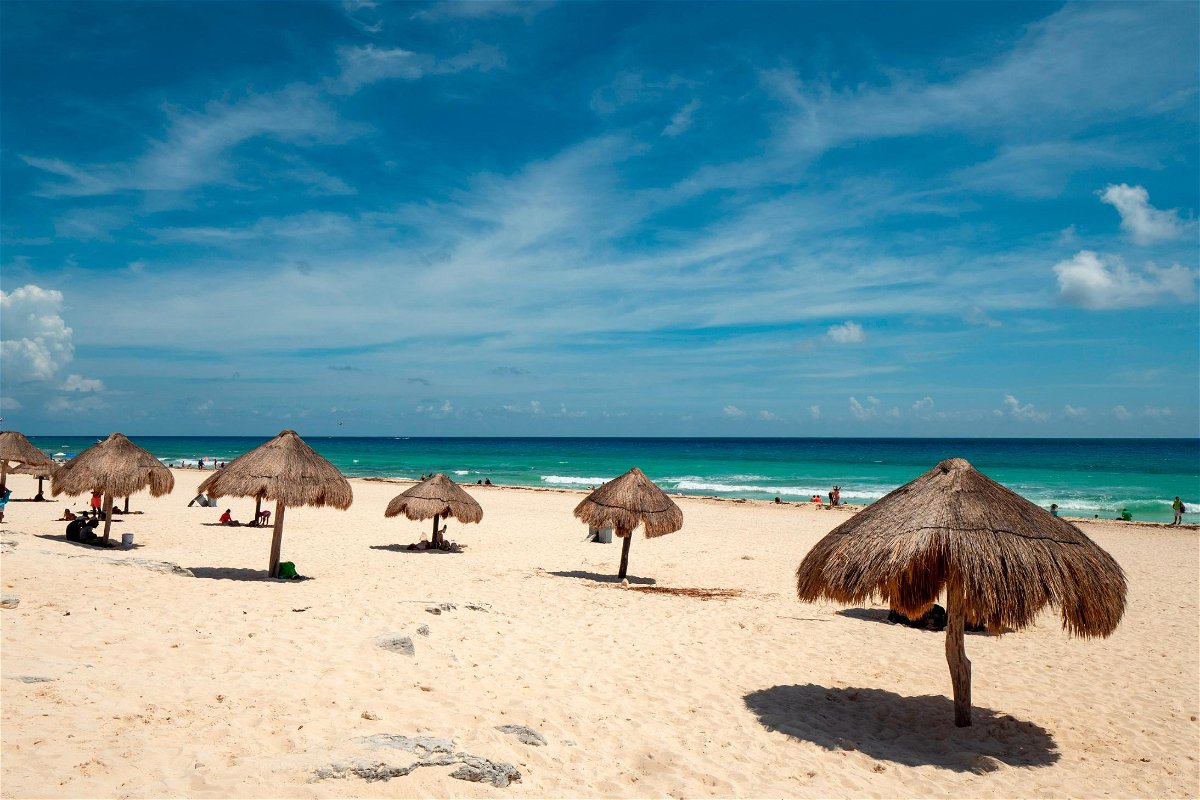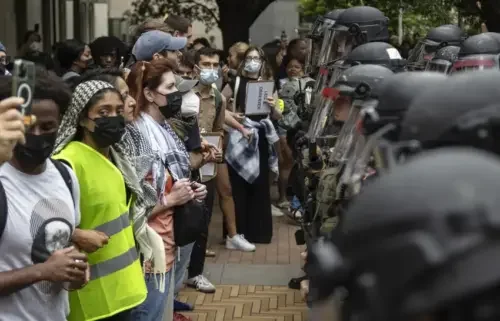U.S. deploys border authorities to Cancun to spot migrants posing as tourists

CANCUN, Mexico — U.S. border authorities have been deployed to assist Mexican immigration officials in spotting travelers arriving in Cancun, Mexico, with the intention of continuing to the U.S. southern border, according to two Department of Homeland Security officials.
The effort is part of a multi-pronged approach to stem the flow of migration to the US-Mexico border following consecutive months of increasing arrests. In May, border authorities encountered around 180,000 migrants on the southwest border, according to one of the officials, putting the US on track to surpass 2019 crisis numbers with four months left in the fiscal year.
The expansion to Cancun is part of an existing program to position US Customs and Border Protection officers with their foreign counterparts in “strategically placed locations” where they work alongside immigration authorities to identify people who are likely heading toward the US with the intent to enter illegally, according to one of the Homeland Security officials.
Cancun has been on the “radar screen” for some time, according to a former Customs and Border Protection official, because it has one of Mexico’s major airports with significant international travel. Expanding to Cancun was “long in the works” because US officials had identified it as one of the routes used by people who illegally cross the US southern border, the DHS official added.
It underscores the evolving landscape of migration and the various methods used by migrants to arrive at the US southern border. Vice President Kamala Harris is diving into those challenges this week during her first foreign trip, sending a blunt message to migrants while in Guatemala: Don’t come.
The trip to Guatemala and Mexico underscores the Biden administration’s focus on Central America and migration from the region, in the wake of a record number of unaccompanied minors who crossed into the U.S. this spring and overwhelmed border facilities.
Harris met with Guatemalan President Alejandro Giammattei on Monday and flew to Mexico to meet with Mexican President Andrés Manuel López Obrador. On Tuesday, Harris said she strongly believes the US and Mexico are “embarking on a new era” and cited the long-standing relationship between the two countries. That partnership includes collaboration on immigration enforcement.
When asked about border officials deploying to Cancun, Customs and Border Protection pointed to the Immigration Advisory Program, which was created in 2004 to “prevent terrorists, high-risk and improperly-documented travelers from boarding commercial aircraft destined to the U.S.” The agency later built on that concept and launched the Joint Security Program, working with Mexican law enforcement for a similar mission.
There are a range of nationalities arriving at the US-Mexico border. While the majority are from Mexico and the Northern Triangle countries of Guatemala, El Salvador and Honduras, nearly 34,000 were listed as “other” in the citizenship grouping in April, according to Customs and Border Protection. That category includes, for example, people from Brazil and Venezuela.
It’s unclear whether there will be a permanent presence in Cancun, the DHS official said. As part of the program, US officials work with the host nation to identify people who are “high risk” for illegal migration and stop them before they go any further.
The US also has doubled down on human smuggling, launching operations focused on dismantling networks and imposing consequences on traffickers.
While in Guatemala on Monday, Harris announced that the administration will create a smuggling and human trafficking task force. That announcement came on the heels of a joint operation launched by the administration focused on transnational criminal organizations linked to the smuggling of migrants.
“With the help of our federal and foreign partners, we aim to cut off access to that profit by denying these criminals the ability to engage in travel, trade, and finance in the United States. We intend to disrupt every facet of the logistical network that these organizations use to succeed,” Homeland Security Secretary Alejandro Mayorkas said in an April statement.



